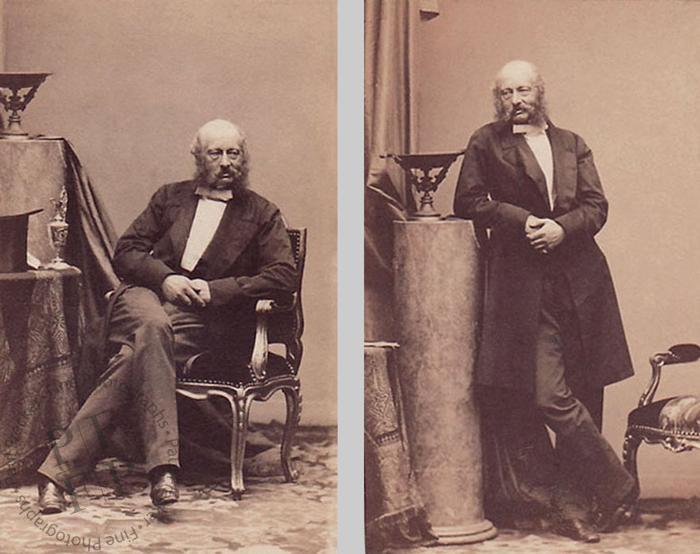Lord Lucan
(1800-1888)
George Charles Bingham, 3rd Earl of Lucan, was a British general and field marshal. As commander of the cavalry in the Crimean War, he was largely responsible for the disastrous Charge of the Light Brigade.
Born in London on 16 April 1800, Bingham was the eldest son of Richard, 2nd Earl of Lucan. Educated at Westminster, he became an ensign in the 6th Regiment of Foot on 29 August 1816, aged 16. He moved to the 3rd Foot Guards on 24 December 1818 and went on half-pay the next day. On 20 January 1820 he became a lieutenant in the 8th Foot. He obtained a company in the 74th foot on 16 May 1822, again went on half-pay, and on 20 June moved to the 1st Life Guards. On 1 December 1825 he was appointed as a Major to the 17th Lancers and succeeded to the command of the regiment as Lieutenant-Colonel on 9 November 1826. On 14 April 1837 he went on half-pay once more. Although the regiment remained in England, Bingham was attached to the Russian staff and was present at the Balkans campaign of 1828.
In 1829 he married Anne, seventh daughter of Robert, sixth earl of Cardigan, by whom he had two sons and four daughters; she died on 2 April 1877.
Bingham was MP for County Mayo between 1826 and 1830. On 30 June 1839 he succeeded his father as Earl of Lucan and in 1840 was elected as one of the representative peers of Ireland. He became Lord Lieutenant of County Mayo in 1845, and embarked on the improvement of his Irish estates, where he appears to have been universally hated. During the Famine, he was less than sympathetic to the plight of his tenants.
He became a Colonel in the army on 23 November 1841, and a Major-General on 11 November 1851. In 1854 the Crimean War broke out and Lucan applied for a brigade. On 21 February he was appointed to the command of the cavalry division consisting of a Heavy and a Light Brigade. The Light Brigade was under the command of Lucan's brother-in-law, Lord Cardigan. Unfortunately, the two men loathed each other and were unable to work together. Cardigan complained about Lucan's interference, and Lucan complained that Cardigan's ideas of independence were encouraged by Lord Raglan.
At the battle of Balaclava, it was Lucan who sent the Light Brigade into the ‘Valley of Death.’ The two Heavy regiments suffered seriously, and Lucan was wounded in the leg by a bullet. When they met Raglan said to him, ‘You have lost the Light Brigade!’ and reported in his despatch of 28 October that ‘from some misconception of the instruction to advance the Lieutenant-General considered that he was bound to attack at all hazards.’ Lucan complained against the censure but the government decided that he should be recalled, as it was essential that the commander of the forces should be on good terms with the commander of his cavalry.
Lucan returned to England at the beginning of March 1855 and applied for a court-martial, which was refused. He vindicated himself in the House of Lords on 19 March. He received the Crimean medal with four clasps, the Legion of Honour (3rd class), the Medjidie (1st class) and was made KCB on 5 July 1855. He became Colonel of the 8th Hussars on 17 November and then had no further military employment, although he was promoted to Lieutenant-General on 24 December 1858, to General on 28 August 1865 and finally to Field-Marshal on 21 June 1887.
He died at 13 South Street, Park Lane on 10 November 1888 and was buried at Laleham, Middlesex.

